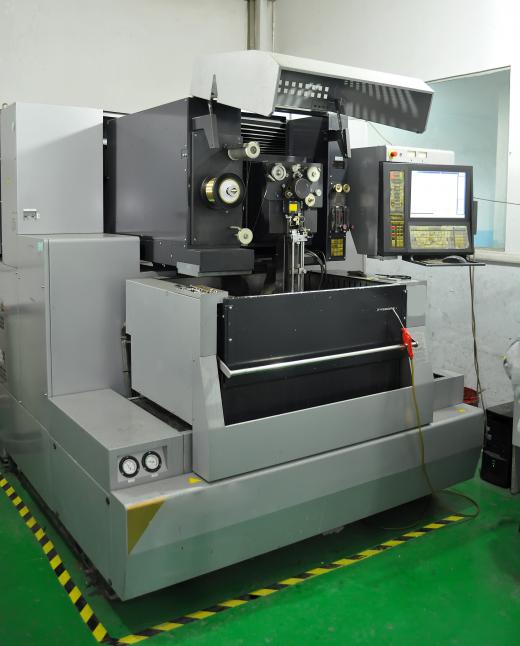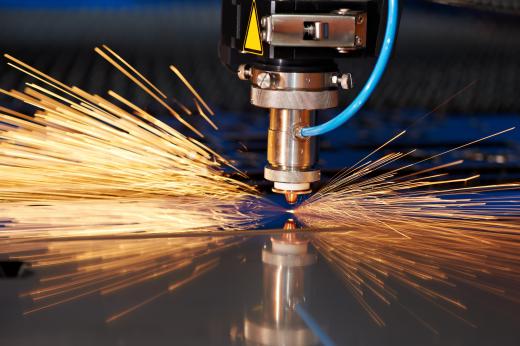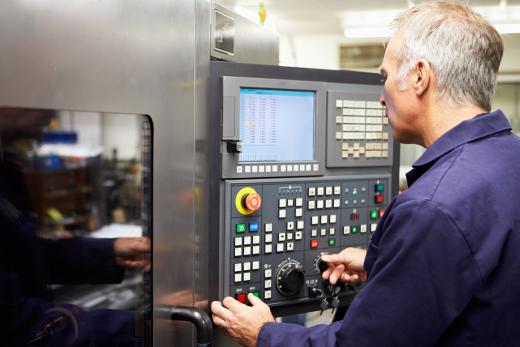The most common types of CNC machining tools are the vertical milling machine, lathes, and drilling or boring machine. Other types include EDM machines, laser cutting machines, and water jet profilers. These are just a few of the examples used in the manufacturing industry today.
The acronym CNC stands for "computer numerical controlled." In these tools, a computer or "controller" drives the machine according to G-code instructions. The machines are designed to quickly perform repetitive tasks accurately at high speeds. Common tasks include cutting, grinding and drilling.

Fabrication of modern CNC machining tools began as early as the late 1940s by John T. Parsons to produce wing sections for the United States Air Force. Today, the range of products made with these machines is vast. CNC machining tools produce highly specialized parts for machine and automotive industries around the globe. Other types of industries that utilize CNC machining tools are the woodworking and granite or stone industries.

The main component of CNC machining tools is the machine control unit. This unit reads and decodes instructions, generates axis commands and feeds motion commands to circuits that drive axis mechanisms. It also controls the spindle, coolant and tool change functions. Other components of CNC machining tools are a program input device, which installs a part program into the CNC control, and a part program, which controls the movement and functions of the machine.

Various types of machinery use CNC as a controller. A lathe or turning center is a common type of CNC machining tool. This type of machine is capable of performing various lathe-cutting operations automatically. Laser cutting CNC machining tools are another type, and use a focused beam of laser light to cut a wide range of materials.
CNC EDM machining tools operate by using a thin wire as an electrode. The resulting erosion caused by the arc is what does all the cutting. CNC controls the table movement, as the wire remains stationary during operation.
A machining center is the latest type of CNC machining tool. It is capable of performing various tasks such as milling, boring and drilling in a single setup. Pallets or worktables automatically exchange work pieces as needed. The machining center automatically changes tool heads to perform the specific tasks as needed.
